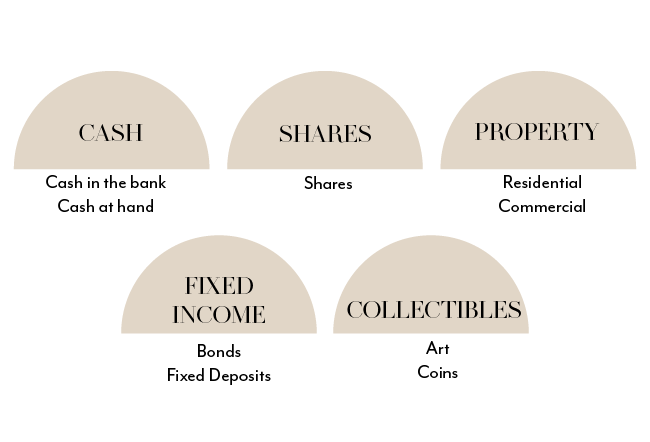Over the years, my husband Peter Switzer and I, have mixed with a lot of successful people. They all have a definable common characteristic — they’re hungry for knowledge. They have an unquenchable desire to be smarter and learn about what they need to know to be richer and wiser.
I want to transfer to you the knowledge I’ve accumulated over many years of watching, listening and learning from these people and from books that I’ve read about money.
On Tilly Money, I want to give you these insider’s lessons on what moneywise people have been taught or (like me) learnt under their own steam about the assets that can make you richer than the average Australian.
I just mentioned the word “assets” and this is where I want to start. You see, the broad definition of an asset is that it’s something you own that has value. Sometimes these assets grow in value, for example, a house or apartment. Sometimes they lose value or depreciate, like a car or a boat. Unless the car is a collector’s item like a Ferrari, the minute you drive it away, it tends to go down in value!
What I want you to understand is that it’s smarter to invest in assets that generally increase in value. These assets are houses, shares, term deposits (money you have locked away in a financial institution for say 12 months at a certain rate of interest), government bonds, some artwork and jewellery, rare coins, the list goes on… Of course I’m not saying for one minute that a great car isn’t worth buying when you have the money to pay for it. But never buy something that might bring you a certain prestige but simply puts you in debt.
Each of these assets described above are said to be an “asset class”.
Some wealth-builders restrict themselves to one asset class, for example stocks. I want you to understand that it’s smart to diversify your wealth and spread your investments across a number of asset classes. You might like to own a property, buy some shares, put some money into a term deposit or even have some art in your portfolio. This way you spread your risk. If the property market goes down, you might lose some value there for a while but the share market could be on the up, so you pick up value in the shares you own.
As I said, these assets mostly include shares, property, bonds and bank deposits or cash, but you might like to invest in collectibles, such as art, if you have special insights into the future value of these more exotic assets. Coming up soon in Tilly Money, Claire Osman has a great story about a woman who has made a fortune collecting primitive art. It started out as a hobby but has turned into a treasure trove for her. See the visual below that explains all the asset classes & includes a few examples in each:

A research paper by the Federal Reserve Bank of San Francisco looked at the “rate of return on everything” and found between 1980 and 2015, the annual returns on Australian shares was 8.7%, while housing netted property players 7%.
Both shares and property are great assets. In the whole scheme of things, shares could be seen as a little more risky than property so they should return a bit more. But a return on your investment in share of 8.7% versus a 7% return on a property suggests that a smart way to build wealth is to combine them.
A key lesson to take from this money lesson is that a sound investment strategy means you diversify across a number of asset classes. This means you can offset losses in some markets by being in other asset classes that have not been negatively affected by a major market event.
For example, if you had been invested only in the stock market with a good, balanced fund based on Australia’s best 200 companies, your wealth still could be 17% poorer but if half of your wealth was in a house in Sydney, where the average fall in prices has been 2.1%, your total losses across both assets would have been reduced to 9.5%. That’s the benefit of diversification. Thrill-seekers avoid diversification but cautious wealth-builders swear by it.
Important: This content has been prepared without taking account of the objectives, financial situation or needs of any particular individual. It does not constitute formal advice. Consider the appropriateness of the information in regard to your circumstances.




